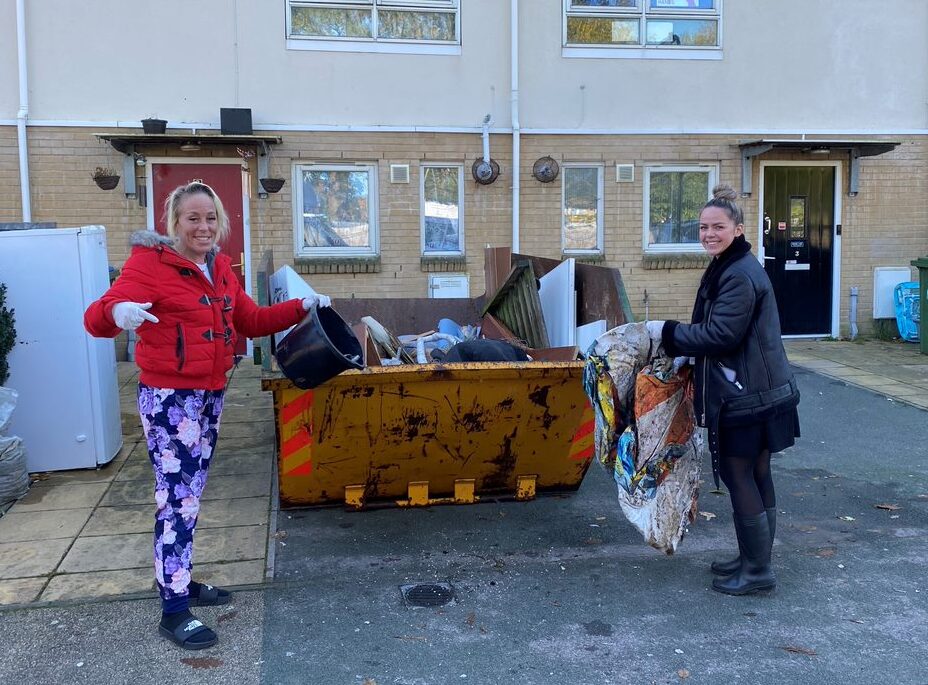
By Chloe Fletcher
Director, HQN
As I leave the National Federation of ALMOs (NFA) and join HQN, the country is anticipating a general election. This seems like a good time to reflect on what the ALMO model brought to councils, tenants and the sector as a whole, and what lessons could be learnt by everyone who’s committed to improving the quality of social homes as well as the services provided to tenants.
What I’ve always loved about ALMOs is their focus on housing management. Having grown up in a council house and then going from university to the LSE to study for my masters in housing under Anne Power and doing my trainee year as a housing officer on Churchill Gardens Estate in Westminster with JSS Pinnacle, I couldn’t help but be steeped in the importance of listening to tenants as well as getting customer service right first time.
Over my career I learnt that many housing management issues are complicated and require time, skill, perseverance and patience to resolve them properly. Unfortunately, not all social landlords appreciate that and put enough resources where they need to be – on the frontline.
Joining the NFA back in 2007, I got to work with a growing number of tenant-focused organisations driven by the decent homes programme to improve services to access government funding to improve tenants’ homes. It was inspiring and highly motivating to see such great leaders work with their boards of councillors and residents to drive cultural change and turn around performance and attitudes to tenants. The prospect of money helped enormously. It’s much easier to get staff on board, engage with tenants and make hard but necessary changes when the result will be new kitchens and bathrooms, improved energy efficiency and better-looking estates. However, the benefits of the desire to work with tenants to improve the service and change the culture before the money came in should not be underestimated.
In the heady days of 70 ALMOs operating across the country we saw performance soar, with many ALMOs receiving the top 3-star rating from the Audit Commission, improving homes and showing there was another way to manage council housing which didn’t lose the security of tenure nor the democratic accountability embedded within council housing.
“It’s no good bashing social housing landlords over the head repeatedly and shouting at them to improve without offering some positive motivation and the resources required to make a difference”
It’s therefore been disheartening, despite the hard evidence that ALMOs work, to witness the steady closure of ALMOs across the country. It’s been a challenging environment for all social landlords over the past decade, as austerity hit and demands increased and ALMOs were often seen (falsely) as too expensive. Yet, without additional funding or central government support many councils kept their ALMOs and some councils set one up even after the decent homes funding had ended. These councils value what their ALMOs bring through their highly-focused, expert housing management service with in-built tenant engagement – and the results so far are clear to see, with the half-yearly TSM figures showing ALMO averages ahead of council averages in every category at no additional cost.
With the next government unlikely to have the luxury of significant amounts of public money to spend, how might they use the lessons of that time to target funding to help improve services and the quality of homes for social housing tenants?
The carrot and stick approach was always one I thought worked well – it’s no good bashing social housing landlords over the head repeatedly and shouting at them to improve without offering some positive motivation and the resources required to make a difference. The country is in desperate need of significant amounts of new social housing, and 20 years after the decent homes programme our existing homes are in need of significant investment.
The forthcoming proactive regulation regime provides part of the solution. However, without additional resources staff are likely to become demotivated gatekeepers of scarce resources, which will have a detrimental impact on both customer services and the quality and availability of homes.
The offer of government investment through the Affordable Housing Programme or a new decent homes and regeneration programme should go hand in hand with the requirement to treat tenants with respect, provide good housing management services, and a prompt and customer-friendly repair service.
In 2024, social housing landlords will continue to be put under scrutiny but I’d urge everyone to work to improve the basics and then make the case for more investment in social housing for the future – it’s not often the wider public and politicians look at our sector and we need to use this time to show what we’re capable of and what a difference that can make to individuals, as well as society as a whole.





















